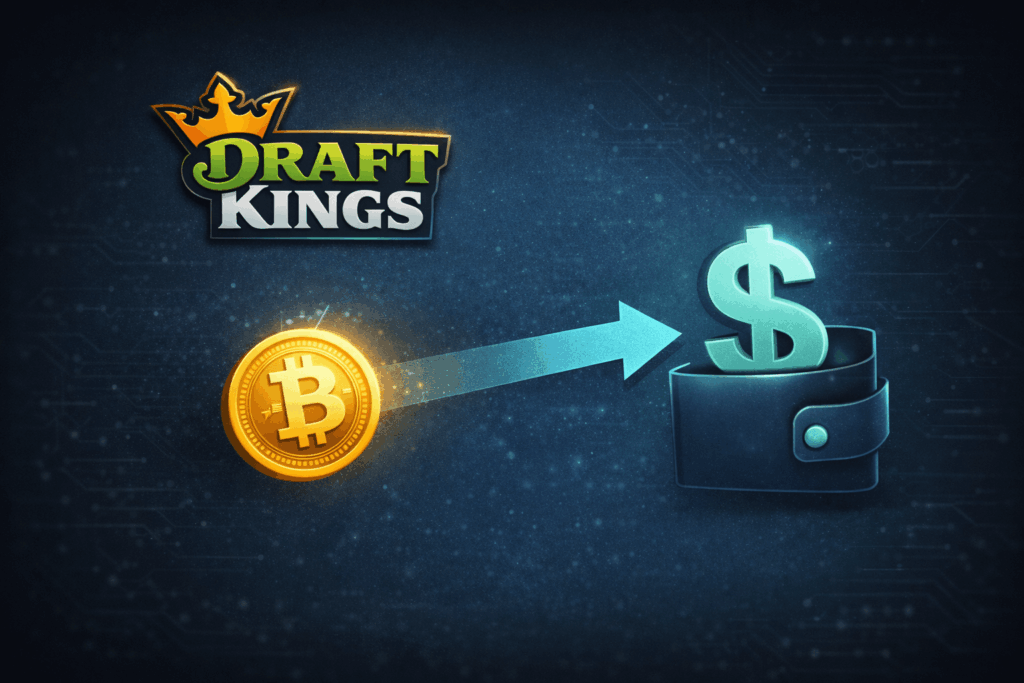This has been percolating for a few months, but DraftKings is getting into prediction markets.
News of the sports betting operator’s interest in acquiring Railbird Exchange, a CFTC-approved Designated Contract Market, broke in July. On Tuesday, Oct. 21, the acquisition became official.
In the press release announcing the deal, DraftKings says the acquisition of Railbird Technologies and its subsidiary Railbird Exchange “supports DraftKings’ broader strategy to enter prediction markets, expanding its addressable opportunity through regulated event contracts.”
There is no mention of “sports” in the release.
DraftKings does say it plans to launch a new mobile app, called DraftKings Predictions, a platform to trade “real-world outcomes spanning, finance, culture, and entertainment,” and potentially “additional categories over time,” seemingly keeping the door open for sports.
“We are excited about the additional opportunity that prediction markets could represent for our business,” DraftKings CEO Jason Robins said.
FanDuel, DraftKings’ primary competitor in the state-regulated sports betting space, also has designs on prediction markets, via its partnership with CME Group. News broke last week that CME Group plans to offer financial contracts tied to sports events and economic indicators through futures commission merchants, including one it is forming with FanDuel.
How much is DraftKings paying to acquire Railbird?
While financial details of the deal have not been publicly disclosed, DraftKings is paying $50 million up front to buy Railbird, plus potentially $200 million more based on incentives, Front Office Sports reported on Thursday.
The EKG Line writes in its Friday newsletter, “We believe the deal was heavily structured to reflect the regulatory risk of prediction markets, with an upfront payment but plenty of earn outs and add-ons to take the potential valuation well north of $100mm if things go well.”
Meanwhile, Polymarket CEO Shayne Coplan said on his social feeds that Polymarket Clearing will serve as DraftKings’ designated clearinghouse in the prediction market space.
Will DraftKings Offer Sports Event Contracts?
While “sports” is conspicuously absent from the announcement, there’s a good chance DraftKings’ core competency is on the road map.
DraftKings and FanDuel must tread carefully, however. Multiple states have warned sports betting licensees that they face serious regulatory consequences, including revocation of their licenses, if they get involved with prediction markets.
“Operators care about their license, and once you get a license stripped in one state, it has deleterious effect in other states,” gambling attorney and lobbyist Bill Pascrell III told DiFiRate last week.
Prediction markets are regulated under the CFTC, but according to many states, the companies are operating as illegal sportsbooks.
Opportunity for sportsbook operators could lie in states where sports betting is not legal, California and Texas among them.
Kalshi, a leading prediction market, offers sports event contract in all 50 states, and Polymarket’s US re-entry is imminent (likely once the government shutdown ends).
There’s a divide in terms of how digital-first sportsbook operators and traditional gambling companies are approaching prediction markets. While DraftKings and FanDuel are diving in, BetMGM, for example, maintains it has no plans to engage in the space.
Pascrell believes courts will ultimately decide that prediction markets can offer sports contracts, but until then, sports betting operators should be cautious.
“I think it’s a really bad look” for operators to offer what states consider illegal, he said, “and it’s gonna agitate a lot of folks.”
Stock market likes the move
The stock market appears to be bullish on prediction markets.
Shares of DraftKings spiked upon yesterday’s news of the Railbird acquisition.
That’s in contrast to the market’s negative reaction to recent news of Kalshi rolling out same-game parlays – a key profit driver and differentiator for sportsbooks – as well as Intercontinental Exchange’s $2 billion investment in Polymarket.
This post has been updated since it was originally published.











